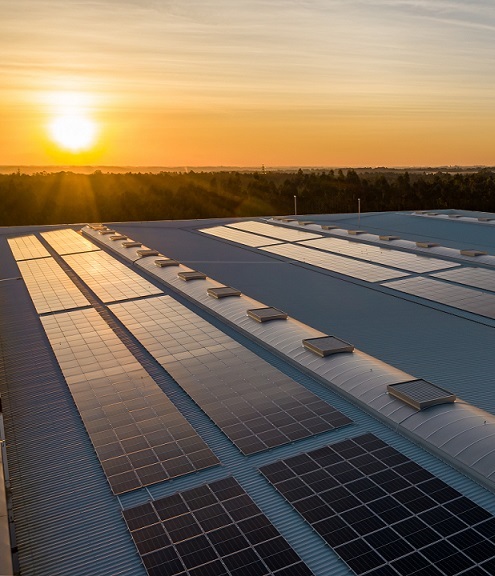
Renewable energy is central to your business’s decarbonization strategy. However, since the availability of renewable energy fluctuates, there is a need for energy storage. For example, on cloudy days, the sun may not deliver as much solar energy as is needed. Thermal energy storage, or TES for short, stores thermal energy to use later.
Thermal energy is the energy responsible for temperature. Heat is the flow of thermal energy. Therefore, it captures excess thermal energy and then stores it in tanks. This mechanism enhances energy efficiency by storing thermal energy when it’s abundant and releasing it as needed. TES balances energy consumption and reduces your business’s energy costs.
Three Kinds of Energy Storage
Sensible Heat Storage
Sensible heat storage involves altering the temperature of a storage medium, usually water, to store thermal energy. This TES type is commonly used for heating and cooling systems and industrial operations. It is the most popular thermal storage method because it is simple and cost-effective.
Latent Heat Storage
Latent heat thermal energy storage involves storing heat by changing the phase of a material, such as melting or solidifying. It is a great way to hold a lot of energy in a small volume. For this reason, latent heat thermal storage is often used in solar energy systems.
Thermochemical Heat Storage
Thermochemical heat storage is a kind of thermal energy storage which stores heat through chemical reactions. Industrial processes commonly use these systems because they can operate at very high temperatures. This type of TES offers lower storage loss. However, the disadvantage is that these systems can be complicated and expensive to construct and maintain.
How Thermal Storage Can Help Your Business
Increased Energy Efficiency
Heating and cooling systems won’t have to work as hard when thermal energy storage backs them up. The storage enables the HVAC to draw on the stored energy during high demand so the system won’t operate at less efficient levels. Excitingly, this will provide considerable savings on energy bills.
Reduced Carbon Footprint
Businesses can reduce their reliance on fossil fuel-generated electricity during peak hours and decrease their carbon footprint by using thermal energy storage to shift energy consumption. Renewable energy sources, such as wind and sun, can be used more readily by storing excess renewable energy. This reduces the need for power from the grid.
Reliable Backup Power
Power outages can leave businesses with lost revenue. However, TES is a dependable energy source for companies during power outages. Operations can continue without interruption because the energy is already stored and available.
By using TES, your business will demonstrate dedication to a greener future. Since many people value sustainability, your company will become more appealing to investors, customers, and employees. Overall, thermal storage dramatically benefits businesses and helps them rely on renewable resources for power. Learn how we can help you make a valuable investment for your organization; contact us today.